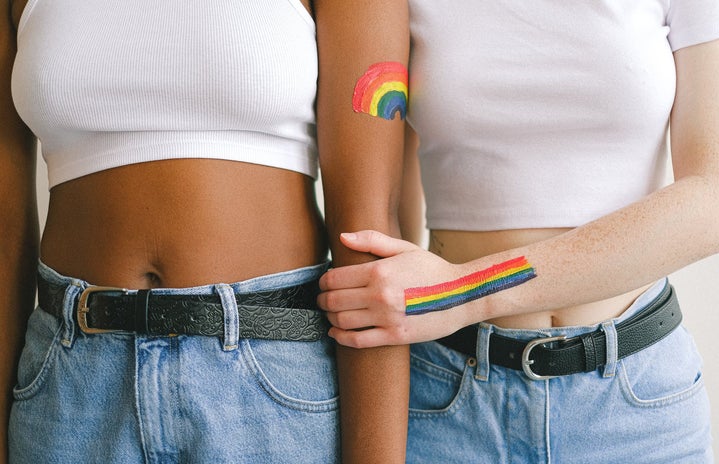There isn’t just one right way to be a proper ally, but due to the slow progress of understanding LGBTQIA+-related topics, things we say can sound patronizing and hurt people in this community more than you can imagine, even if that wasn’t your intention.
So, here’s a non-exhaustive list of things you can say to your friends and family to show your support, January through December, 24/7, sans the unicorns and rainbows.
- Affirm them by showing your acceptance for who they love
Coming out to anyone is perhaps one of the most daunting things people in the LGBT community have to face.
If your friend is new, you might be unsure on how to respond to them. Depending on the situation, affirm and create a safe space there by saying encouraging things like:
- I’m proud of you for who you are
- I’m proud of you for being brave and staying true to yourself
- I accept all of you
- Acknowledge the hardship they (may) have gone through
Society tends to move slowly when it comes to letting go of traditional, conservative mindsets. Being part of the LGBT community is far from a sickness or a defect. Put yourself in their shoes and imagine the responses they could’ve gotten from less accepting individuals they confided in before. Understand that it might be difficult to fully and comfortably express themselves when people are still dismissive or undereducated about LGBT culture. For example, companies pinkwash (use social movements, pseudo pro-LBGT messages in this case, to their advantage as a marketing strategy) themselves in order to make profit, especially during pride month.
- Help others understand
This doesn’t mean that you need to transform into a full-on justice warrior, hell-bent on revenge for your friends. Not We know that not everyone is willing to listen and not every space is safe for you to help them understand, but being able to shape and change beliefs about the community can help to alleviate the huge amounts of misconceptions surrounding them. They’re complex individuals just like us, and not a walking TikTok stereotype that loves RuPaul’s drag race, plants and heavy eyeliner.
Start small first, by talking to misinformed individuals, especially if you have some sort of influence in your social sphere, such as a teacher or occupy a leadership position.
Here are some great resources to be more informed:
- Financially support them
While many are lucky enough to still be financially supported, be it by themselves or by their family, less fortunate members of the LGBTQIA+ community often need support. If you have the means, donate to local organizations supporting the community, such as these:
- The T Project (A shelter providing for transgender individuals in Singapore)
- Oogachaga (Counselling and support services for the LGBTQ+ community)
(I think there are only these two major ones in Singapore)
- Ask them.
No two people are the same! While some individuals are vocal about their views, others might fear speaking up. If your friend happens to be one of the latter, take initiative and ask how you can be a source of support to them, whether it’s by reminding them that their feelings are valid, or by simply being a quiet, supportive and comforting presence when they need you there.

